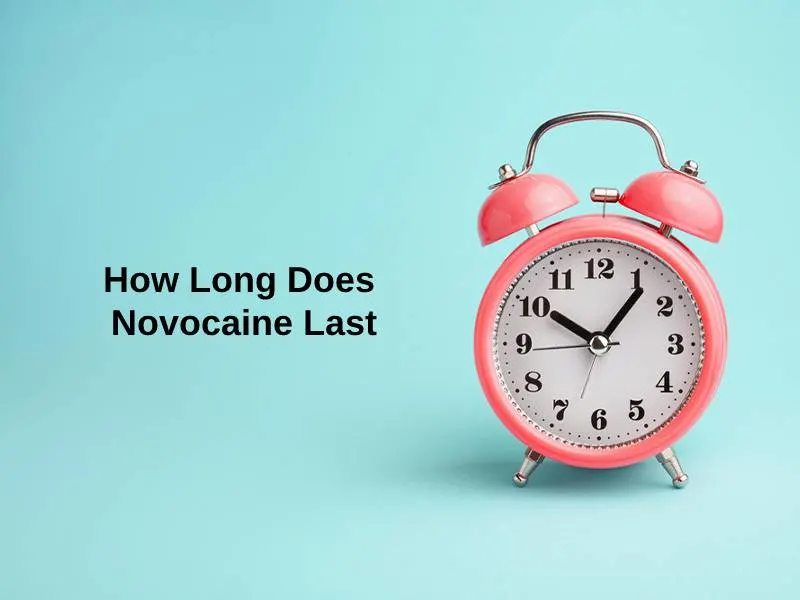Exact Answer: 1 Hour to 3 Hours
Novocaine is a local anesthetic drug that is used mainly by doctors to numb parts of your body, majorly mouthparts. Novocaine is used during minor surgeries such as for filling tooth cavities, wisdom tooth removal, removing mole or warts, and other such surgeries. When used, novocaine creates a tingling sensation on the injected part and might also result in a burning sensation for an initial few minutes. However, after a few minutes, that particular part starts feeling numb from any sensations.

How Long Does Novocaine Last?
The effects of Novocaine are extremely short-term as compared to other anesthetics. You can understand it by the statement that novocaine is the shortest-acting injectable anesthetic used. Although taking a rough estimation of how long novocaine and its effects last, the time ranges between a minimum of 1 hour to a maximum of 3 hours. However, many factors play a vital role in determining how long novocaine will last to show its effects. Among many factors, the major factor is how an individual is using novocaine.
Novocaine can either be used solely or can be mixed with different substances for multiple purposes. When used solely, the effects of novocaine stay for a very short duration. However, dentists and other professionals also use novocaine after adding it to other anesthetics and chemicals to increase its duration. One of the most common substances used along with novocaine to increase its effective period is epinephrine, also popularly known as adrenaline. When novocaine is used along with epinephrine or adrenaline, its effective period can be increased up to a maximum of 2 hours. In short, the effective period for when novocaine is used along with epinephrine or adrenaline is about 2 to 3 hours.
| Usage Of Novocaine | Time |
| Only novocaine | 30 minutes to 1 hour |
| Novocaine along with epinephrine (adrenaline) | 2 hours to 3 hours |
Why Does Novocaine Last That Long?
Novocaine lasts for about 2 to 3 hours. When injected, the sensation of numbness can be felt within 5 to 10 minutes of injection. However, apart from how the novocaine is injected into the body, there is another factor that determines how long will novocaine last in the body. That major factor is the amount of dosage of novocaine injected.
It is quite obvious that the higher the dosage, the higher the effective period of novocaine. However, the doctor decides the dosage depending upon different factors. These factors can include points like the type of procedure the patient is having, the size of the area that needs to be numbed, and the number of nerves that need to be blocked from the sensation of pain, and other such things.
Moreover, the doctor can also increase or decrease the amount of dosage of novocaine depending upon the time it might take to complete the procedure. If the procedure would take a long time then the amount dosage of novocaine to be injected will be higher. Whereas on the other hand, if the procedure is short and would not take much more time then the amount of dosage for the novocaine to be injected can be reduced.
Moreover, the effective period of novocaine depends from person to person as well. The scientific reason behind that is the chemical that is responsible to process and synthesize novocaine is pseudocholinesterase. People having higher metabolism produce this chemical in higher amounts. Higher the production of this chemical, the faster the synthesis of novocaine. As a result, the effectiveness of novocaine will be for a longer duration of time as well.
Conclusion
Novocaine is majorly used to prevent the patient from feeling the sensation of pain during surgeries. Though there are numerous anesthetics available, novocaine is still used for certain procedures. However, novocaine might also result in certain side effects in some cases. These cases can be a headache, dizziness, drowsiness, tingling, or burning sensations. Proper rest is required after the procedure is complete so that the side effects do not hamper other activities.